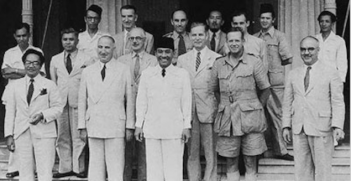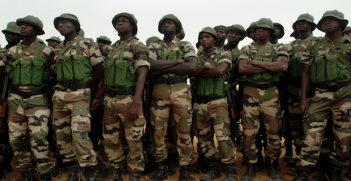Impeachment Casts Shadow on Rio's Olympics

The move to impeach Brazilian President Dilma Rousseff takes away her ability to play host at the 2016 Rio Olympics and creates a new politically charged environment in Brazil in the lead up to the August games.
The Olympic torch has already been passed on from Greece to Brazilian representatives, but ongoing political uncertainty, corruption scandals, pollution and security concerns seem to be haunting the upcoming event.
The international community has been watching the current Brazilian political crises and corruption scandals unfold in astonishment and disbelief. Recently, the Brazilian parliament’s lower house overwhelmingly approved a motion to impeach the first female Brazilian president, Dilma Rousseff. The embattled president has stepped down and has been temporarily replaced by Vice President Michel Temer from a centre-right political party.
Rousseff began her second term in office with unimpressive popularity due to a sluggish economy and accusations of corruption and misappropriation of public funds during her administration. But it was only with the uncovering of the state-run oil company Petrobras corruption scandal as part of Operation Car Wash that Rousseff may have finally lost political support from mainstream Brazilian society.
As president, she was actively engaged in preparations for the Rio Olympics and she was seen as helping build momentum for the Games by liaising with the Olympic committee so that Brazil could win the 2016 bid. When the games begin, the president’s most important role is to be an effective host. But having stepped down from the presidency, Rousseff has said that if the impeachment process proceeds it is very likely she will abstain from playing any official role during the Olympics. According to the Brazilian constitution she will be away from office for approximately six months. It is only after this period and when the impeachment process is finalised that it will be decided whether she is suitable to return to the presidential office. This means that it will be the former Vice President Michel Temer who will lead and host the Rio Olympics.
This could add to political polarisation between those for and against President Rousseff’s impeachment process, creating political tensions during the games. Political antagonism and claims that the current developments are a coup could significantly compromise a successful outcome for the Rio Olympics. International observers still have high hopes that the 2016 games will be as successful as the 2014 World Cup but what are the potential challenges to the Rio Olympics posed by Rousseff’s impeachment process and the current political uncertainty?
Infrastructure issues and security concerns
The Olympics will be a moment of historic importance for Brazil and particularly for the city of Rio de Janeiro. However, the Brazilian media has been raising concerns about infrastructure, water safety and violence in inner Rio. There are claims that the infrastructure framework for the games is rather precarious and could compromise the safety of tourists, national delegations and athletes. Open-air venues for aquatic competitions such as the Rodrigo de Freitas Lagoon and Guanabara Bay have high levels of pollution and could pose health risks for athletes.
Rio’s Mayor Eduardo Paes says the safety of the aquatic venues is being dealt with promptly by state and federal authorities along with concerns about the city’s violence, but there are claims that several athletes have already cancelled their trips. This could be due not only to disappointing infrastructure but also to the current political instability and the accompanying increase in security and violence fears. Ticket sales are also low compared to previous Olympics, with only 60 per cent of tickets having sold by April.
Political tensions and possible demonstrations could disrupt events
VEJA, one of Brazil’s most popular weekly political magazines, has said that Rousseff does not enjoy the political support to return to the presidential role. Polls show that the majority of the Brazilian population is dissatisfied with Rousseff’s presidency, particularly in the light of several public embezzlement scandals.
Nonetheless, Rousseff and her Workers’ Party still enjoy support from some segments of the Brazilian society and there are claims that the current impeachment proceedings could be a coup. In April her supporters occupied several public buildings to protest against the presidential impeachment, disrupting law and order. While the constitution and the Brazilian legal framework have been respected throughout the process, Rousseff has not been personally charged with any criminal offences so far and her impeachment is based on technicalities. Meanwhile, the impeachment is being promoted by an opposition also tainted with misappropriation of public funds and wrongdoing.
But the corruption scandals may have damaged President Rousseff’s and the Workers’ Party’s political credibility beyond repair and it seems that the majority of the population supports what has happened.
This means that in addition to ongoing concerns about the games’ infrastructure, the new polarisation of Brazil has created an environment that could lead to demonstrations during the Rio Olympics, potentially disrupting the competition as well as the city’s peace and stability.
Flavia Bellieni Zimmermann holds a Bachelor of Laws with Honours from the Pontifical Catholic University in Rio de Janeiro and a Graduate Diploma of International Relations and National Security from Curtin University, Western Australia. She is also a current intern with the AIIA for WA. This article is published under a Creative Commons Licence and may be republished with attribution.





